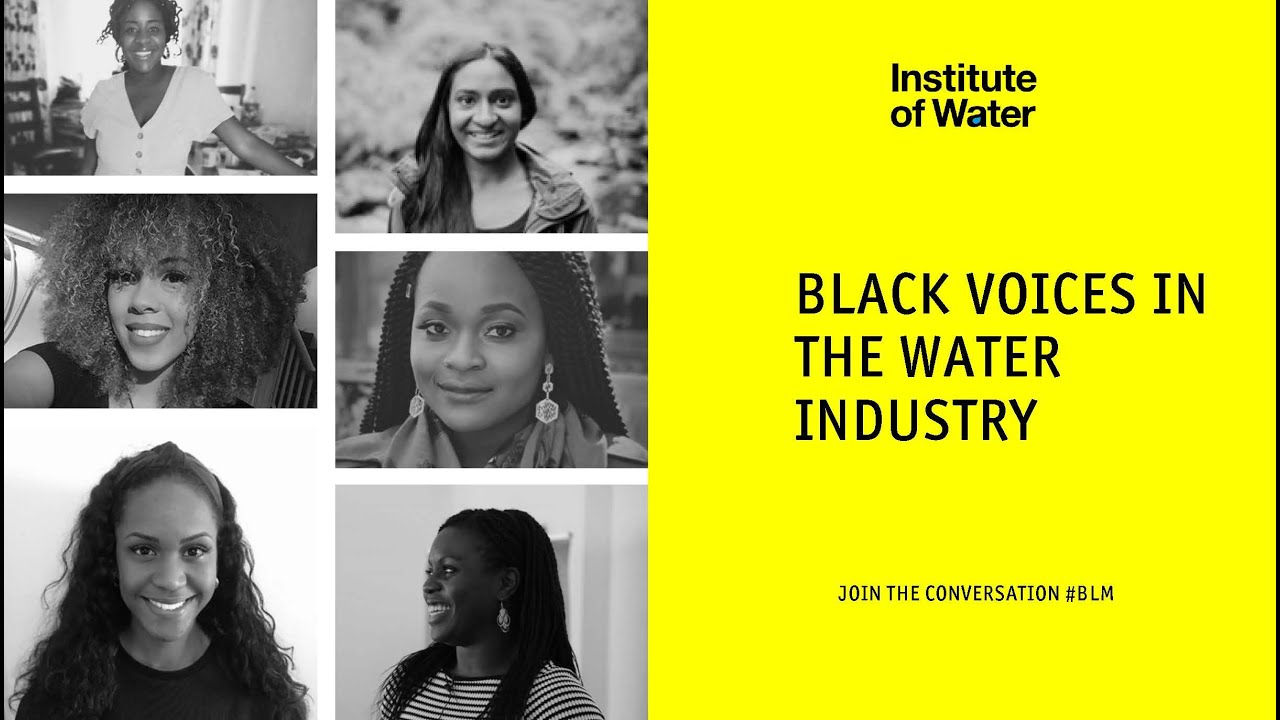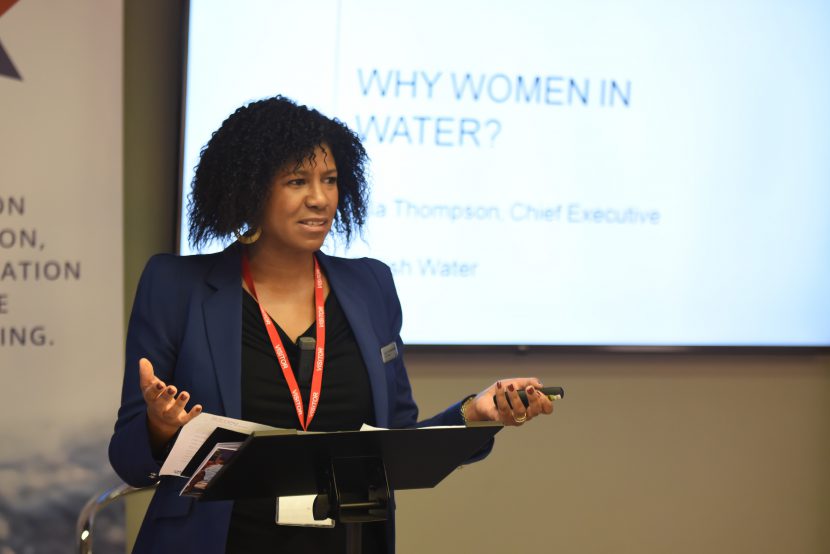Water is for everyone and so is the water industry. It provides an essential resource to humanity and should be an inclusive industry to reflect this. The Institute of Water is working hard to break down the barriers and promote diversity, equality and inclusion in the water sector.
DEI in the water industry
Diversity, equality and inclusion (DEI) are buzzwords that all businesses have heard of, but it is so much more than that. By having DEI in your organisation, and by making it a priority, you will gain benefits from utilising people’s full potentials. In order to appreciate the importance of DEI and integrate it effectively into the water industry, people need to understand exactly what it means. All too often the term is thrown around with little explanation.
Diversity, equality and inclusion in the workplace is so essential, and of course, the water industry is no different. Diversity ensures the presence of differences with a variety of cultural and social backgrounds. Equality makes sure that everyone has the same opportunities and is treating in the same way. Inclusion refers to everyone in the team feeling valued and welcomed. These three factors are complementary and must be focused on together.
The Institute of Water has been promoting DEI in the water industry over the last 5 years. They are a professional body that supports the careers of anyone working in the UK water sector. Their mission is to enable members to reach their full potential in order to drive the sector forwards and one of their main focal values is inclusivity; to value and respect people from diverse backgrounds and to work collaboratively to achieve a better outcome. They encapsulate the idea of what it means to embrace DEI in the workplace and are already seeing the benefits.
Institute of Water DEI Board Champion and Affinity Water Operations Scientist, Sarah Murray said: “We believe passionately in the value that a diverse water industry brings to society and we are committed to promoting these benefits. The water industry provides an essential resource for life, operates across all regions of the UK and employs over 200,000 people in a range of roles. Therefore, it is essential that it is open and inclusive to all.”

What has the Institute of Water done?
Back in 2015, the Institute of Water conducted their first DEI survey. The results were used to create their DEI policy, aims and action plan which they have followed for the last 5 years. In October 2020 they completed a second survey and released a full DEI report.
Murray explained: “We conducted the first DEI survey in 2015 to understand the diversity of our membership base, to provide data to underpin our DEI policy, aims and action plan and to understand how representative we were of the water industry. The data we collected from this survey allowed us to understand our membership further and is now providing us with a direct comparison for our 2020 survey. Publishing our first Diversity, Equality and Inclusion Report was a really important moment for us. It underpins all our initiatives we are doing and shows we are committed to the cause.”
The key findings from the 2020 survey have now been published. One of the most significant findings was the increase in members who identify themselves as female, with almost double the representation of the water industry in general (37.5% compared to 20%). Similarly, the survey identified a significant increase in the number of members who identify themselves as from a Black, Asian or Minority Ethnic background (BAME) at 7% compared to 4.2% in 2015. Along with these key findings, the DEI report presents information on the Diversity and Inclusion Progression Framework and the Institute of Water’s 2020 DEI policy and aims.
The surveys underpinned a lot of the great work that the Institute of Water is focusing on and have enabled them as a company to improve their DEI. However, they have also accomplished many other achievements alongside.
“We have done a lot of work to identify the barriers for underrepresented groups but we understand there is lots more to do. In the last year alone, we have held a very successful ‘Black Voices in the Water Industry’ webinar series, a ‘Women in water’ conference and a Wellbeing conference. These have all been really popular with our membership base and provided our members a fantastic forum to be a part of our work to improve DEI across the Institute.”
The institute of Water recently released a Black Voices in the Water Industry video as a platform for BAME people within the water industry to share their experiences of racism. The video was made after a series of webinars was completed in 2020 with a panel of speakers discussing their experiences of working within the water industry. The aim of the video was to capture the key messages in a shorter format to enable it to be shared more widely.
The future
Diversity, equality and inclusion are not going to transform instantly in the water sector. The continued work that the Institute of Water is doing shows their dedication to the matter and will hopefully inspire others to follow suit.
“To demonstrate our constant commitment to DEI we are signatories of the Royal Academy of Engineering Diversity Concordat, the Science Council Declaration on Diversity, Equality and Inclusion and the Energy & Utilities Sector Inclusion Commitment. We also have a DEI policy and action plan and review this on an annual basis. This policy will see us deliver initiatives which enable us to promote under-represented groups and encourage diversity among our volunteer communities, in particular our Area Committees.”
There are still many challenges that the water industry needs to address. Achieving a water secure world presents complex challenges and best way to reach this is with diversity, equality and inclusion throughout the sector.
Progress is being made in the water industry and undoubtedly the work that the Institute of Water is doing is helping to make a real difference. However, that does not mean that it is time to relax. Further advancement is needed and that will only be achieved through hard work. Other influential organisations in the water industry need to work to promote these issues.
The water industry is for everyone and that needs to be reflected in the organisations.
Do you have an article to share? Click here to submit. If you’d like to subscribe to our weekly newsletter, click here.







